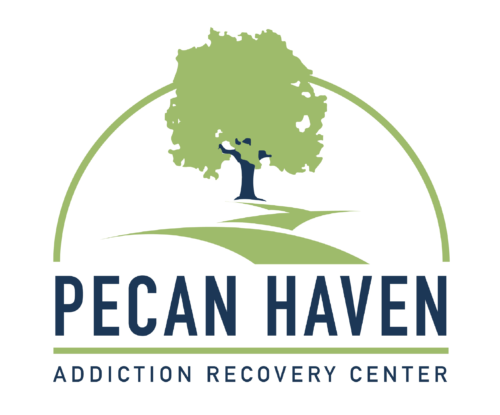Struggling with lingering withdrawal symptoms or worried about relapse after detox? Residual detox could be the next critical step in your recovery journey. This process supports individuals who have completed the initial stages of detox but continue to experience lingering effects from substance use. In this blog, we’ll explain what residual detox is, how it works, and what you can expect if you or a loved one is entering this stage of addiction recovery.
What is Residual Detox?
Residual detox is a specialized phase of addiction treatment designed to address ongoing withdrawal symptoms and mental health struggles that remain after the initial detox phase. While traditional detox typically lasts a few days to a week, residual detox may extend over several weeks or more, depending on the individual’s needs.
This extended approach provides continued medical and psychological support to help stabilize clients and reduce the risk of relapse. It is especially beneficial for those recovering from substances with longer-lasting withdrawal effects, such as opioids, benzodiazepines, or alcohol.
Who Needs Residual Detox?
Residual detox isn’t necessary for everyone – but for many, it can make a major difference in the success of long-term recovery. You may benefit from residual detox if:
- You continue to experience withdrawal symptoms after standard detox
- You have a history of chronic or heavy substance use
- You’re struggling with a co-occurring mental health condition (dual diagnosis)
- You feel physically or emotionally unstable post-detox
- You have a higher risk of relapse due to environmental or psychological triggers
This type of detox serves as a bridge between acute medical care and full engagement in therapy or rehab programs.
What to Expect During Residual Detox
Residual detox is focused on healing the whole person – physically, mentally, and emotionally. Here’s what to expect:
1. Medical Monitoring
Clients are closely monitored by medical professionals who manage lingering withdrawal symptoms and adjust treatment plans as needed.
- Vital signs and health metrics are tracked regularly
- Medications may be prescribed to ease discomfort or cravings
- Support is available 24/7 for physical and mental stabilization
2. Mental Health Support
Ongoing psychological care is a cornerstone of residual detox.
- Individual and group therapy sessions may begin during this phase
- Clients learn coping strategies and mindfulness techniques
- Co-occurring mental health issues (like anxiety or depression) are addressed early
3. Structured Environment
A calm, structured setting is provided to reduce external stressors and reinforce positive routines.
- Daily schedules encourage rest, nutrition, and self-care
- Substance-free surroundings support focus and healing
- Peer support fosters connection and accountability
Benefits of Residual Detox in Recovery
Residual detox offers several advantages that support long-term recovery:
- Reduced risk of relapse: By managing ongoing symptoms, the likelihood of returning to substance use is significantly lowered.
- Improved mental clarity: Stabilization allows clients to fully engage in treatment without being clouded by cravings or emotional distress.
- Increased readiness for rehab: Residual detox lays the groundwork for deeper therapeutic work in residential or outpatient programs.
- Comprehensive dual diagnosis treatment: It gives clinicians time to evaluate and treat co-occurring disorders properly.
How Long Does Residual Detox Last?
The length of residual detox varies depending on the person’s physical health, type of substance used, and history of addiction. On average, it may last from two to four weeks, but some individuals may require longer care.
Factors influencing duration include:
- Substance type (opioids, alcohol, benzos, etc.)
- Length and severity of substance use
- Physical and mental health status
- Response to treatment and medication
Is Residual Detox Safe?
Yes. When administered by trained professionals, residual detox is a safe and controlled process. Unlike attempting to manage lingering symptoms at home, participating in a formal program ensures that clients have access to medical support, emotional care, and resources to ease the transition into recovery.
Residual Detox vs. Standard Detox: What’s the Difference?
| Feature | Standard Detox | Residual Detox |
| Duration | 3-10 days | 2-4 weeks (or more) |
| Focus | Managing acute withdrawal symptoms | Managing lingering symptoms and stability |
| Medical Monitoring | Intensive, short-term | Ongoing, long-term |
| Therapy & Mental Health | Limited or post-detox | Integrated during detox |
| Transition to Rehab | Begins after detox ends | Starts during detox |
Frequently Asked Questions About Residual Detox
1. Can I skip residual detox and go straight to therapy?
In some cases, yes. But if you are still experiencing symptoms like anxiety, insomnia, or mood swings, skipping this step may hinder your ability to engage fully in therapy.
2. Is residual detox covered by insurance?
Many insurance plans cover residual detox as part of a comprehensive addiction treatment plan. It is best to check with your provider or treatment center for details.
3. What substances are most likely to require residual detox?
Residual detox is commonly recommended for individuals recovering from:
- Opioids
- Alcohol
- Benzodiazepines
- Methamphetamine (in some cases)
A Personalized Approach at Pecan Haven
At Pecan Haven Addiction Recovery Center in Monroe, Louisiana, we understand that recovery doesn’t stop after initial detox. That is why we offer residual detox programs tailored to each client’s unique needs. Whether you are healing alcohol addiction, drug addiction, or facing a dual diagnosis, our team provides compassionate care that builds the foundation for lifelong recovery.
We also offer residential treatment programs and intensive outpatient services, creating a seamless transition through every stage of healing.
Call us today at (318) 600-3333 to learn more or schedule a confidential assessment. Your journey to lasting recovery starts with the right support.

